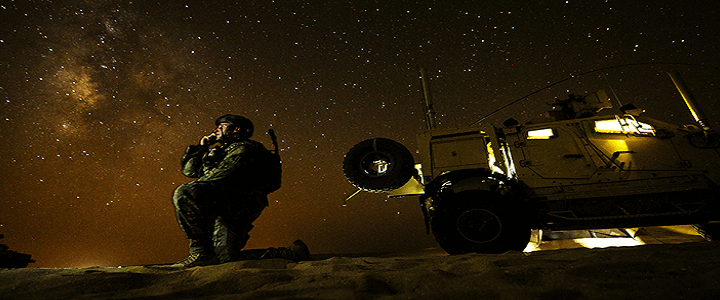In a much-anticipated move, the White House released a memorandum Dec. 18 formally directing the Department of Defense to set up a high-profile U.S. Space Command focused on overseeing and enhancing American military operations in space. And in response to the order, DoD gave a hearty salute.
“The establishment of Space Command is a critical step in accelerating our space capabilities and posture to defend our vital national interests and deter our adversaries,” said Army Lt. Col. Joe Buccino, a Pentagon spokesman. “This combatant command will lead space operations and develop space warfighting doctrine, tactics and techniques.”
The memo, signed by President Donald Trump, calls for the new entity to absorb the space duties of U.S. Strategic Command and become DoD’s 11th combatant command.
The memo directs Defense Secretary James Mattis to recommend a commander and deputy commander who Trump could nominate and the Senate could confirm to lead Space Command. The commander will be a four-star officer.
Deputy Defense Secretary Pat Shanahan tweeted that DoD “will work with Congress to determine the timeline to full operational capability for U.S. Space Command.”
Creation of the command is one of several steps the Trump administration has been promising for months as it seeks to better secure U.S. satellites against growing threats from China and Russia. Other measures, including formation of a Space Force that will furnish space equipment and personnel, remain in the works.
“While we establish this new combatant command, we continue to develop a legislative proposal to meet President Trump’s vision for a Space Force as a sixth U.S. military service,” Buccino said. “These organizations will ensure we maintain our national technological and military advantages in space for generations to come.”
In a speech at NASA’s Kennedy Space Center in Florida, Vice President Mike Pence said Trump intends to sign a directive “in the days ahead” outlining the administration’s plans and timeline for launching the Space Force.
The administration indicated earlier that it will include funding to launch the Space Force in its fiscal year 2020 budget request, due out in February. The administration wants Congress to authorize the new military branch in the FY 2020 defense authorization bill.
Rep. Mike Rogers (R-Ala.), chairman of the House Armed Services Committee’s strategic forces panel, welcomed the Space Command announcement.
“I am excited to see President Trump moving this policy forward,” Rogers said. “The establishment of the U.S. Space Command is just one step towards our shared goal of a U.S. Space Force. I look forward to working with him to accomplish it.”




